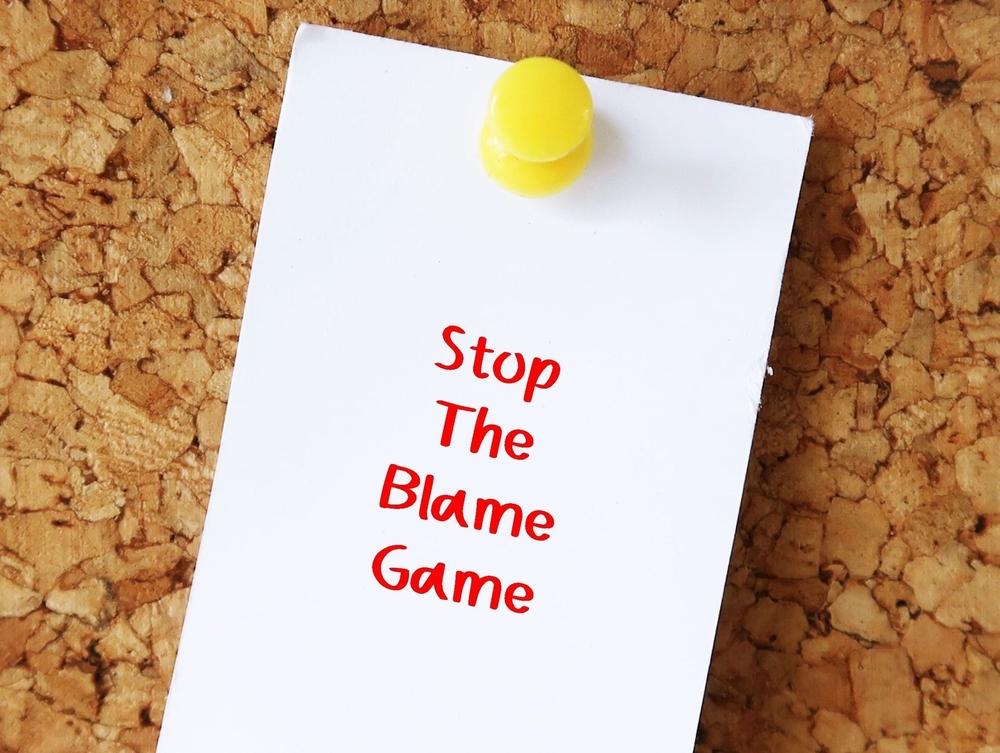If you are a small business owner like me, at some point in the past you have probably indulged in a spot of blame-shifting. When things go south, it is convenient to blame others. The economy is bad. The competition is unfair. Your team isn’t doing enough. We frequently fail to accept accountability.
But if we are real, how often is the problem really…us?
It’s a tough pill to swallow. It might sound painfully uncomfortable to take personal responsibility. But as I’ve found, taking responsibility isn’t just the ethical thing to do— it is also simply the most intelligent.
Today, I want to delve into the reasons for blame-shifting, its impact on our lives and how we can step out of this pattern once and for all.
Why Do We Shift Blame?

It is a natural defense mechanism — blame-shifting. Psychologists offer an explanation —it is a way to protect our ego. Nobody wants that feeling of having lost. Therefore, we search for an outside explanation for the issue.
For example:
- Sales are low? The marketing team ruined the marketing strategy.
- Customers are unhappy? Maybe they’re too demanding.
- A project was late? It was the fault of the supplier.
Sound familiar? I’ve been there too.
The catch is: studies demonstrate this habit harms us in the long run. Research published in ScienceDirect suggests that accountability can reduce decision errors. And for business owners, it saves them from disaster.
The Cost of Avoiding Responsibility
Blaming external factors with no control does not help us grow.
For example, say your small business experienced an existential crisis: Your online sales plummeted after a website refresh. You may turn your web developer into a hasty punching bag, but that means you have no clue about your role. Did you provide clear answers to the questions? Did you run tests on these changes prior to the launch?
Blame-shifting prevents us from moving on. On the other hand, taking ownership helps us uncover solutions.
Here is a cruel truth I had to come to terms with: as the owner of my business, everything — ultimately — comes down to me. That’s the deal. I am the rallying point for my team. My clients do not give me money, they give me chances to deliver. If something goes south, even if I had nothing to do with the issue my job is to fix it.
Owning up is tough. But it’s also empowering.
The Power of Personal Accountability

Here are a couple of things that changed in my business when I stopped shifting the blame.
First and foremost, my team had more respect for me. No one likes to collaborate with a leader who digs out other people. Every time I openly talked about my mistakes and showed my effort to get better, they did too.
It also helped me to become more self-aware. In short, self-awareness is the superpower of business. It allows you to observe patterns, predict issues and be more informed to make decisions.
In fact, according to IESE Business School self-awareness is the number one predictor of leadership success. And isn’t that what each of us wants?
How to Take Ownership?
Taking ownership of your actions isn’t the easiest task in the world but it is something you can strengthen over time. Below are some steps that have worked for me:
- Pause Before You React
And when things do go awry, your first reaction might be to scapegoat someone else. Instead, pause. Take a moment to reflect. Instead, ask yourself: “How did I contribute to this situation?
- Ask Tough Questions
Asking questions is how self-awareness begins:
- Did I set clear expectations?
- Did I do enough to communicate?
- Did I get enough stuff over there?
If the answer is no, that is where you begin.
- Acknowledge Mistakes Publicly
I own my mistakes — particularly with my team. There is no punishing yourself here. It’s about showing integrity.
For example: in my past we made a bad hire. I took the blame and said that I rushed the process instead of blaming HR. My team found this honesty refreshing.
- Focus on Solutions
Ownership does not mean mulling over problems. It’s about finding solutions. If sales have declined, establish a way to boost them. Are there ways to improve training for your sales team? Is there more to your marketing strategy?
- Learn and Move Forward
Every mistake is an opportunity to learn. Check what failed and modify accordingly. This breeds resilience and confidence in the long run.
Why Does This Matters for Small Business Owners?
As a business owner you don’t have the option to punt. Usually wearing multiple hats —CEO, marketer, customer service representative—and if we do not hold ourselves accountable to it then who exactly will?
But here is the good part — if we take accountability, everyone else falls in line too. Lead by example — when we step up to take ownership, so will our teams. This fosters a culture of trust, accountability and development.
In my experience, clients notice too. Consumers appreciate businesses that admit their mistakes and then work to correct them. It creates a bond of loyalty and strengthens your brand.
Breaking the Blame Cycle

Now if you are ready to quit blame-shifting, here is another thing to keep in mind—it is a process. You won’t change overnight.
So, start small. The next time something goes wrong, try to refrain yourself from blaming someone. Look inward instead.
Something that I have found helpful is journaling. I make a note of one thing that I could have done to improve my day. So, it becomes sort of a responsibility and pushes me to proceed in a healthy manner.
The Bottom Line
While pointing a finger may make you feel better in the short term, it does not make for a good business owner. Yes, it’s harder to take responsibility. But it’s also freeing.
Owning our mistakes allows us to take charge of our growth. By doing so, we develop into a better leader, build our business with higher integrity and most importantly earn those around us the respect.
So, the next time you find yourself about to play the blame game, stop there. Take a deep breath. And then ask yourself: “What can I do to improve this?”
Trust me, it’s worth it.
For more guidance and inspiration, visit Zone of Genius. It has great resources for leadership and self-improvement.










